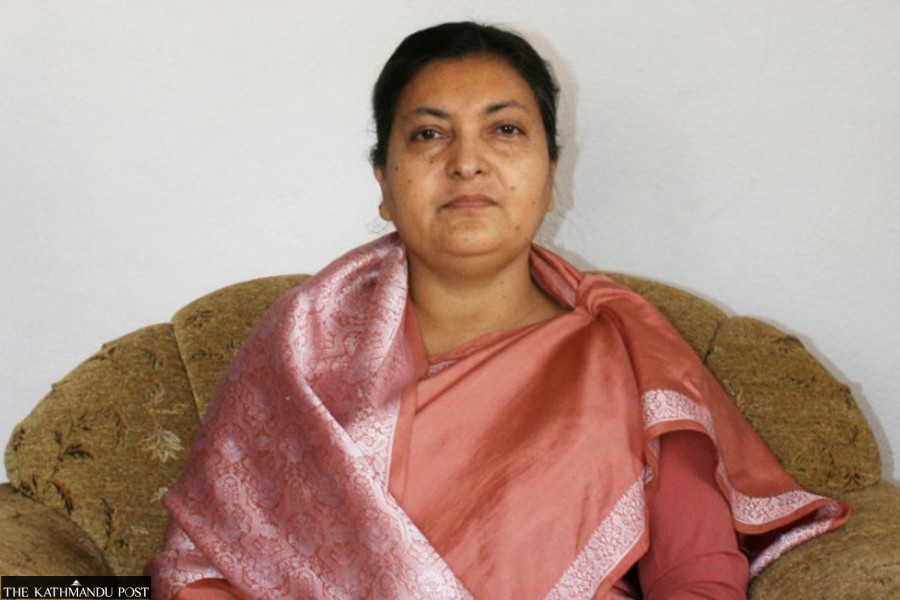Editorial
President must pay
Bhandari seems ready to buttress her former party’s nationalist image even if it means tainting her’s.
That President Bidya Devi Bhandari administered the coup de grâce on the constitution by rejecting the citizenship amendment bill should come as no surprise. For when has she acted as a custodian of the constitution in her two terms as the head of state? She had enthusiastically stayed up until midnight to legitimise KP Sharma Oli's mortal blows against parliamentary democracy. But on Tuesday, she chose to sit on the amendment bill idly until midnight, when the deadline for authenticating it lapsed. She had no constitutional right to hold up a bill that the Parliament had twice endorsed. By openly trampling on the constitution, she has set a troubling precedent. As a nascent republic, we do not yet have many Presidents to compare against, but she has certainly made Nepalis realise that she is not the kind we want.
For much of her time in office, President Bhandari has had no qualms about displaying her partisanship, sometimes even forgetting that she is a ceremonial rather than an executive head of state. Her arrogance stems from the confidence that her former party, the CPN-UML, will support her every step of the way. As the second iteration of parliamentary elections after Nepal's foray into a federal democratic republic draws close, Bhandari embodies the desperation of her former party which is bent on doing well electorally any which way. Alternatively, UML might want to defer elections until its poll prospects improve. If populist nationalism is her former party's only ticket into the new Parliament this November, Bhandari appears ready to go to any length to buttress it, even if that means irrevocably tainting the image of her high office in the process.
In trying to stay loyal to her former party, the President has undermined the supremacy of Parliament, the institution that represents the voices and choices of the people. Not only has she broken a social contract with the people, she has also dragged the President's Office into the eye of a political storm. She had sworn by the constitution that she would abide by its rules, and that she would act as its custodian on behalf of the people. But, ironically, she has herself become a threat to it—as if she were a cat tasked with taking care of a bowl of milk.
Political and constitutional explanations aside, the President's active role in scuttling the citizenship amendment bill has thrown half a million people from the frying pan into the fire. Her’s is a blow on the spirit of social justice which has been the mainstay of Nepal’s social and political struggles over the past three decades. If she was so keen on dancing to the tunes of a particular political party, she could have chosen to resign from her post before the deadline. In sacrificing her well-earned position, she could have helped garner votes for her former party on the back of populist nationalism. Instead, she chose to go on the offensive and violate the constitution, an avoidable political act from the constitutional head of state that Nepalis will not easily forget—or forgive. The cost for such a brazen breach of the constitution must be high. As many constitutional experts have suggested, she may now have no option but to resign.




 13.12°C Kathmandu
13.12°C Kathmandu














